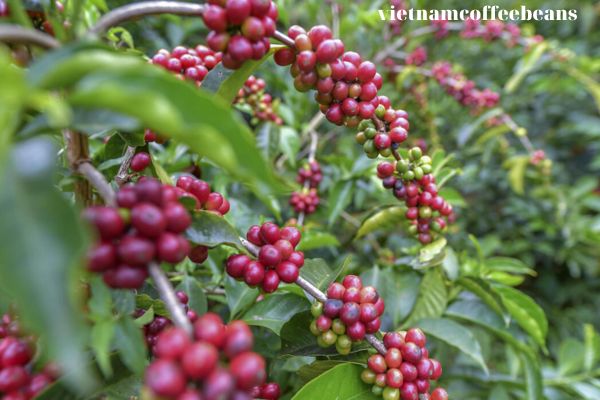As a coffee lover, I know that timing is everything when it comes to brewing the perfect cup of joe. Every method of brewing coffee has its own ideal brewing time, and getting it just right can make all the difference in taste and quality.
Whether you’re using a drip coffee maker, a French press, or a pour-over method, understanding how long to brew your coffee can take your morning routine from mediocre to magnificent.
The science behind coffee brewing is fascinating. From the moment those tiny grounds come into contact with hot water, chemical reactions are taking place that release the flavors and aromas we all love.
However, these reactions take time to fully develop, meaning that timing is crucial for achieving the best possible flavor profile.
In this article, I’ll be delving into the ideal how long to brew your coffee for different methods of making coffee so that you can start every day with a perfectly brewed cup of your favorite blend.
The Science of How Long to Brew Your Coffee

You might not realize it, but there’s a whole lot of science behind making that perfect cup of joe.
Coffee extraction is the process by which water dissolves the soluble compounds in coffee beans, resulting in the flavorful beverage we all know and love.
The flavor compounds in coffee are highly dependent on time and temperature during brewing.
If you brew your coffee for too long, you risk over-extraction, resulting in bitterness and astringency.
On the other hand, if you don’t brew your coffee long enough, you may end up with weak or under-extracted coffee that lacks depth and complexity.
Proper timing is essential to achieving optimal extraction and maximizing the potential of your coffee’s unique flavor profile.
Ideal Brewing Time for Drip Coffee
For the perfect cup of drip coffee, it’s key to find how long to brew your coffee.
The ideal brewing time for drip coffee is between 4-6 minutes. This allows for enough time for the water to extract all of the flavors from the coffee grounds without over-extracting and causing bitterness.
However, it’s important to note that brewing temperature and coffee grind size also play a role in determining the ideal brewing time. If your water temperature is too low or your grind size is too fine, you may need to adjust your brewing time accordingly.
It’s all about finding the right balance between these factors to achieve a delicious cup of drip coffee every time.
Ideal Brewing Time for French Press Coffee
Brewing a perfect cup of French press coffee is like creating a work of art. The ideal brewing time lies somewhere between 3-5 minutes, providing ample time for the rich aroma and flavor to seep into every sip. However, it’s important to note that the brewing temperature and grind size can also affect this timing.
For instance, if you’re using a coarser grind size, you may need to extend your brew time closer to 5 minutes in order to fully extract all of those delicious flavors.
On the other hand, if your water temperature is too hot (above 205°F), you may want to shorten your brew time closer to 3 minutes in order to avoid any bitter or burnt taste notes.
Ultimately, finding that sweet spot for your specific coffee blend will take some experimentation and patience, but once you nail it down – oh boy – you’ll never go back!
Ideal Brewing Time for Pour-Over Coffee
If you’re looking for a clean, bright cup of coffee with nuanced flavors that really shine through, pour-over brewing might just be your new go-to method.
The ideal brewing time for pour-over coffee varies depending on the type of roast and personal preference, but generally falls between 2-4 minutes.
It’s important to use high-quality beans and proper water temperature control to ensure optimal extraction.
Pour-over coffee filters come in various sizes and materials, which also affect the brewing time.
Ultimately, experimenting with different variables such as grind size and water flow rate can help fine-tune your perfect brew time for the ultimate pour-over experience.
Factors that Affect Coffee Brewing Time
One key element in creating a delicious pour-over coffee is understanding the various factors that impact its brewing process.
Two important factors are the coffee grind and water temperature. The finer the coffee grind, the slower the extraction time will be. This means that if you use a fine grind, it will take longer for your coffee to brew properly.

On the other hand, using a coarse grind will result in a faster extraction time, which may lead to under-extracted or weak-tasting coffee.
Similarly, water temperature plays an important role in determining brewing time as well. If you use water that’s too hot, it can over-extract your coffee and cause unpleasant bitter notes to emerge.
Conversely, if your water isn’t hot enough, it might not extract enough flavor from your grounds and result in sour tasting coffee.
By paying attention to these variables when making pour-over coffee at home, you can ensure optimal brewing times and achieve consistently delicious cups of joe every time.
Frequently Asked Questions
Conclusion
In conclusion, the ideal brewing time for coffee varies depending on the brewing method and personal preferences.
For drip coffee, a brewing time of 4-6 minutes is recommended to achieve a balanced and flavorful cup.
French press coffee should be brewed for 3-5 minutes to create a full-bodied and bold flavor profile.
Pour-over coffee, on the other hand, requires a longer brewing time of 2-4 minutes to allow for proper extraction.
It’s important to note that factors such as grind size, water temperature, and bean quality can all affect the brewing time and ultimately impact the taste of your coffee.
By experimenting with different variables and finding what works best for you, you can brew a delicious cup of coffee every time.
Remember: timing is everything when it comes to making the perfect cup!






